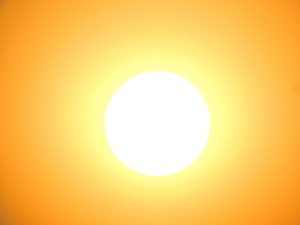Summertime, 2022 – There are more frequent extreme weather events like higher temperatures and heat waves in the United States because of climate change. Heat-related illness is the nation’s leader of weather-related fatalities. There is an average of 35 fatalities a year. The recent heat wave in June with record-breaking temperatures over 100 degrees has affected over 100 million people. University of Michigan Public Health Professor Marie O’Neil comments, “With climate change, extreme weather, including heat, is becoming more frequent and intense. Hot weather has unequal impacts, and seniors, very young children, outdoor workers, people without access to air conditioning, and those with chronic illnesses are among the most vulnerable.”
Many factors have a role creating heat stress including environmental conditions, level of physical activity, type of clothing or protection gear, and individual risk factors. Environmental heat factors include: air temperature, humidity, local radiant heat sources and air flow. The heat index, commonly used to measure environmental conditions, is what the temperature feels like to the human body. It is determined by air temperature and humidity.
People have been warned to limit their exposure to the high temperatures outside. They may overheat very quickly, leading to potential health problems of heat exhaustion or heat stroke. Symptoms of heat exhaustion are: headache, dizziness or fainting. Additional symptoms include: weakness, wet skin, confusion, thirst, nausea or vomiting. Heat stroke is a more severe condition and can be fatal. Symptoms include: confusion, passing out, seizures, and hot dry skin. It is recommended that everyone take frequent breaks out of the heat, drink plenty of water (at least one pint of water per hour) and wear light-colored, lightweight, loose-fitting clothing. Acclimatization is a beneficial physiologic adaptation that occurs after repeated exposure to a hot environment.
Listen to the full report below:
Contact: Dick Needleman, Health reporter, 103.3 AshevilleFM, [email protected]
More Posts for Show: Asheville FM News Hour
